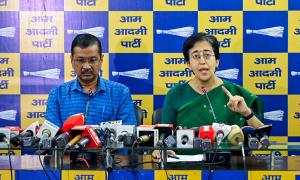India has upped the ante against the European Union's generalised system of preferences, which provides higher quotas and lower duties to imports from select countries, saying the GSP benefits were decided arbitrarily and aimed at garnering support to push its case at the World Trade Organisation.
Officials said India would wait for the EU to act on the World Trade Organisation directive asking Brussels to refrain from providing preferential access to countries under the drug window.
The EU is planning to approach the appellate body of the WTO against the dispute settlement body's decision of September 5.
EU officials said the future course of action would be taken in consultation with trading partners like Pakistan and Latin American countries, who were given GSP benefits to help them in their fight against drugs.
Indian officials are confident that the appellate body will rule in their favour. "If the appellate body rules against the EU, all GSP decisions will be under question," said an official.
To press its case further, India had contemplated approaching the appellate body, but under WTO rules it could not file a fresh case, officials said.
India had approached the WTO after GSP benefits were extended to Pakistan under the drug window at the time of the US-led attack on Afghanistan.
India had also sought similar benefits but the same were not granted. It then approached the WTO's dispute settlement body questioning the rationale and said Indian exports were affected, particularly in sectors like textiles, where Pakistan received preferential access in 15 EU member states.
Indian officials said Pakistani exports had jumped 12 per cent in 2003-04, largely on account of higher exports to the EU.
Apart from the drug window, GSP benefits have been extended on considerations like labour and environment.
It is widely expected that the EU and US will provide preferential access to exports from developing and least developing countries in return for their support on multilateral issues like agriculture.








More from rediff